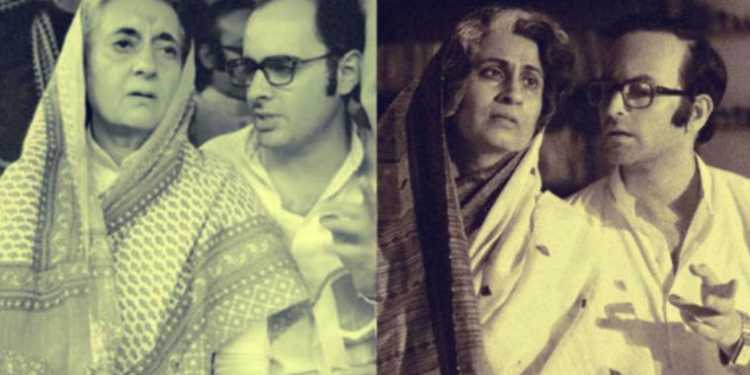The Congress Party is now increasingly perceived in some circles as the third major occupier of the country after the Mughals and the British. Granted that their reign was an on-and-off affair which lasted for around sixty years, and that too within an adequately democratic framework. But the stranglehold of one family over the government machinery for decades, as it subtly pushed a false and politically convenient narrative in every domain, did render our democracy uniquely undemocratic. This subtle means of appropriation went much beyond government-sanctioned textbooks and politically controlled mass media, infiltrating popular culture and creating yes-men in fields meant for the creative.
This is the reason the upcoming film Indu Sarkaar is already making a huge buzz, with more than a month to go before its release. Three years after the advent of a new dispensation, the industry is finally showing signs of breaking from its neo-colonial shackles, and exploring themes which have been taboo until now. The portrayal of political history in mainstream cinema, restricted and largely in line with the narrative aforementioned, has finally entered unchartered territory. As with any revolution, this one too has been polarizing. Those committed to throw off our neo-colonial yoke have welcomed the film, and those committed to preserve the same standards and boundaries of the past, have come out against it.
Among the latter obviously is the Congress Party. The trailer itself was enough to send shivers down the Congress party’s spine, or whatever is left of it. Apart from some of actor Neil Nitin Mukesh’s dialogues, which made it amply clear that the film would leave no stone unturned in presenting certain politically sensitive facts, the female protagonist’s final dialogue addressed to a police officer telling him that he will continue to be a slave of the mother-son duo till the end of his life, would have stung the Congress Party quite hard. The party has come out with a statement, effectively saying that the events are falsely depicted and hinting that the film is sponsored by vested interests.
Congress spokesperson Jyotiraditya Scindia said – The Congress condemns the alleged “false depiction” in Madhur Bhandarkar’s film Indu Sarkar based on the Emergency. The film is “fully sponsored”. The organisation and the individual who is behind the film is known to us. We totally condemn the false depictions in the film”
Allegations about the film being sponsored by vested interests are of course unsubstantiated. The allegation of the film being a false depiction without having watched it, entirely based on a three-minute trailer, is utterly moronic. Be that as it may, considering that the trailer of the film seems to indicate that the emergency will be portrayed negatively, can the Congress Party tell us what would be the right portrayal of such a phenomenon?
It raises the more important question: does the Congress Party even believe that the emergency was a dark period in India’s post-independence history, or was it all rainbows and unicorns and trains running on time?
It is difficult to come up with a similar instance of a dark period in the modern history of any other nation, which has so far not been portrayed by mainstream cinema. The Congress Party waxes eloquent about intolerance, fascism and dictatorship, but the fact of the matter is that for them to perpetuate this hypocrisy, the advent of emergency must be wiped out from the psyche of the Indian people. Until it persists, any claim that they are better than the Mughals and the British before them, fizzle out quickly. Rants about being the paragons of liberalism and the flagbearers of social justice remain hollow.
This is the reason why a twenty-one month period wherein the prime minster ruled by decree and civil liberties were curtailed, wherein the press was censored and political opponents jailed, wherein human-right violations were rampant and mass forced-sterilization campaigns were conducted, doesn’t find a place in our history books. This is the reason they never allowed a film to be made on this topic, and that they will continue to oppose the upcoming one tooth and nail.
What the party doesn’t realize perhaps is that its opposition to the film is working to its detriment. The party and its ecosystem’s vicious attack on the film have made it a talking point nationally. The golden truth about showbiz- all publicity is good publicity- is set to turn around and bite the party back. Moreover, the filmmaker Madhur Bhandarkar has stated that seventy-percent of the film’s storyline is pure fiction anyway, making the Congress Party which alleged ‘false depiction’ India’s laughing stock.
The emergency took place forty years ago. Considering more than 65% of India’s population is less than 35 years old, only the country’s older minority lived through what is without doubt the darkest period of independent-India. Since the younger generations have grown up reading laurels about past prime ministers and their meaningful contributions, the truth for once will be a welcome change. Let us learn about the barbarians who ruled us and the atrocities they perpetrated on our people, and most interestingly, how they mastered the art of hiding it all from us.




























